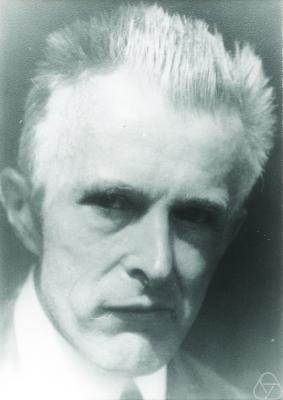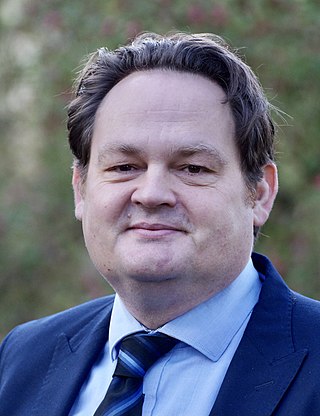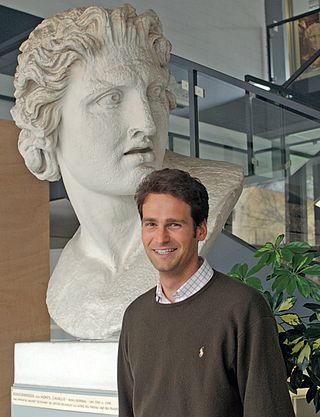Peter Funke (born 18 March 1950 in Rheine) is a German ancient historian.
Peter Funke studied history and German studies at the University of Münster from 1969 to 1974. From 1975 to 1978, he held a research assistant position at the ancient history department of the institute for ancient world studies at the University of Cologne. In 1978, he received a doctorate from the University of Cologne, after which he continued to work as a research assistant at Cologne until 1985. Between 1979 and 1981, Funke simultaneously taught the subject of ancient history at the University of Siegen. In 1985 he achieved the habilitation at Cologne for a work entitled, Untersuchungen zur Geschichte und Struktur des Aitolischen Bundes (Research on the History and Structure of the Aetolian League). Thereafter, Funke taught as C3-Professor of Ancient History at the University of Siegen until 1988. Since then, he has served as Professor of Ancient History and the University of Münster. In addition, Funke is leader of the research project Historische Landeskunde des antiken Griechenland (Historical Study of Ancient Greek Regionalism) and since 1991 has been Pro-rector for Teaching and Student Affairs at the university of Münster. In 1999, Peter Funke refused a professorial position at Munich University.
Funke's research focusses are the history of the Greek state system from Mycenaean to Roman times, Greek historiography, ancient constitutional history, ancient regionalism and historical geography, as well as the relationship between religion and rulership in antiquity. Within the German Universities Excellence Initiative, he is employed in the Münster funded excellence group, Religion und Politik with the role of cults and sanctuaries in ancient treaties.
Funke was pro-rector for Teaching and Student Affairs at the University of Münster, as well as a member of the Joint Academic Reform Commission of North Rhine-Westphalia and of the working group, "New Media in Higher Education" of the German Rectors' Conference.
From 1996 to 2004, Peter Funke was subject evaluator for Ancient History and deputy chair of the specialist committee of Ancient World Studies for the Deutsche Forschungsgemeinschaft (DFG). From 2004 to 2005, he was also speaker for the "Ancient Cultures" review board. He has had close contact with scholars of other disciplines since 1995 as the DFG liaison for Münster University. Since 2005 he has belonged to the senate and steering committee, as well as the senate sub-committee for Perspektiven der Forschung (Perspectives on Research). In 2010 he became vice-president of DFG for the humanities.
Funke has been a member of the Kommission für Alte Geschichte und Epigraphik in the German Archaeological Institute since 1988 and an ordinary member of the German Archaeological Institute since 1989. In 1997, the International Academy of Paedagogical Scholarship in Moscow selected him for membership. In 2007, he became project leader for Inscriptiones Graecae. He is also a board member and managing director of the Institute for Interdisciplinary Cypriot Studies at the University of Münster. In 2011, he became one of the editors of the ancient historical journal Klio . Funke has been a board member of the "European Research Centre for Ancient Eastern Mediterranean Cultures" (CAMC) since 2009, a consortium founded and based at the University of Tartu in Estonia, which also includes the University of Münster and the University of Helsinki.
Funke has held several roles in the Union of German Historians (VHD). From 1990 to 1992, he was the subject representative for ancient history on the union's board, then deputy chair of the union (1992–2000) and finally chair (2004–2008).

The University of Cologne is a university in Cologne, Germany. It was established in the year 1388 and is one of the most prestigious and research intensive universities in Germany. It was the sixth university to be established in Central Europe. It closed in 1798 before being re-established in 1919. It is now one of the largest universities in Germany with more than 50,000 students. The University of Cologne is a member of the German U15 association of major research-intensive universities and was a university of excellence as part of the German Universities Excellence Initiative from 2012 to 2019. It is constantly ranked among top 20 German universities in the world rankings.

The Gottfried Wilhelm Leibniz Prize, in short Leibniz Prize, is awarded by the German Research Foundation to "exceptional scientists and academics for their outstanding achievements in the field of research". Since 1986, up to ten prizes are awarded annually to individuals or research groups working at a research institution in Germany or at a German research institution abroad. It is considered the most important research award in Germany.

Axel Alfred Weber is a German economist, professor, and banker. He is currently a board member and chairman of Swiss investment bank and financial services company, UBS Group AG, and has announced his resignation effective 7 April 2022.
Robert Weimar was a German professor of law and psychologist.
The University of Siegen is a public research university located in Siegen, North Rhine-Westphalia and is part of the Deutsche Forschungsgemeinschaft, a society of Germany's leading research universities. The University was founded in 1972. 18,618 students were enrolled at the university as of the year 2017.

Barbara Stollberg-Rilinger FBA is a German historian. She mainly researches the early modern period and has held the chair for early modern history at the University of Münster. Stollberg-Rilinger is one of the leading representatives of research that examines the constitutional history of the Holy Roman Empire on the basis of symbolic-ritual forms of communication. Her work on rituals, symbolic communication and ceremonial influenced research on the exercise of power in the pre-modern era.
Karl-Wilhelm Welwei was a German historian. He was regarded as one of the most notable experts on the history of Ancient Greece.
Thomas Zink is a German mathematician. He currently holds a chair for arithmetic algebraic geometry at the University of Bielefeld. He has been doing research at the Institute for Advanced Study in Princeton, at the University of Toronto and at the University of Bonn among others.

Peter-André Alt is a German literary scholar, former president of the Freie Universitaet of Berlin and, since August 2018, president of the German Rectors' Conference (HRK). Alt is married to the writer Sabine Alt and has two adult sons.

Heinrich Scholz was a German logician, philosopher, and Protestant theologian. He was a peer of Alan Turing who mentioned Scholz when writing with regard to the reception of "On Computable Numbers, with an Application to the Entscheidungsproblem": "I have had two letters asking for reprints, one from Braithwaite at King's and one from a professor [sic] in Germany... They seemed very much interested in the paper. [...] I was disappointed by its reception here."

Andreas Pinkwart is a German politician and academic who served as State Minister for Economic Affairs, Digitization, Innovation and Energy in the governments of Ministers-President Armin Laschet and Hendrik Wüst of North Rhine-Westphalia from 2017 to 2022. He previously was the Dean of HHL Leipzig Graduate School of Management and holder of the Stiftungsfonds Deutsche Bank Chair of Innovation Management and Entrepreneurship.
Hans Beck is a German and Canadian scholar in the field of Classical Studies.

Hermann Spieckermann is a German biblical scholar, historian of ancient Near Eastern religion, and Protestant theologian. He currently holds a chair for Old Testament, or Hebrew Bible, in the Faculty of Theology at the University of Göttingen, in Germany. Through extensive authorial, editorial, and organizational undertakings, Spieckermann has exerted considerable influence on Hebrew Bible research.
Wolfgang Theodor Wessels is a German political scientist. He holds the Jean Monnet Chair ad personam in political science, is a retired professor at the University of Cologne, and the head of the Centre for Turkey and European Studies (CETEUS) at the University of Cologne.
Josef Kroll was a German classical philologist and university rector.

Beatrix Busse is Professor of English Linguistics and the Vice-Rector for Student Affairs and Teaching at the University of Cologne. From 2011 to 2019 she held the Chair of English Linguistics at Heidelberg University where she was appointed as Vice-Rector for Teaching and Student Affairs twice, from 2013 to 2019.

Albrecht Fuess is a German scholar of Islam and the history of the medieval Eastern Mediterranean. He is the professor of Islamic Studies at University of Marburg.

Georg Peters was a German physician, microbiologist and university professor. From 1992 until his fatal mountain accident he headed the Institute of Medical Microbiology at the University of Münster. He was an internationally recognised expert in the field of staphylococci and the infectious diseases caused by them, to which he had devoted himself since the beginning of his scientific career.
Reinhard Stupperich is a German classical archaeologist.

Jonas Grethlein is a German scholar of Ancient Greek literature. Having received a doctorate from the University of Freiburg, he is a professor of Ancient Greek at Heidelberg University. His academic work has focused on Greek tragedy, the Homeric epics, narratology, and historiography. In 2012, he was awarded a Starting Grant of about €1.4 Million by the European Research Council.